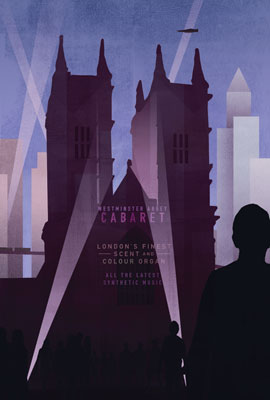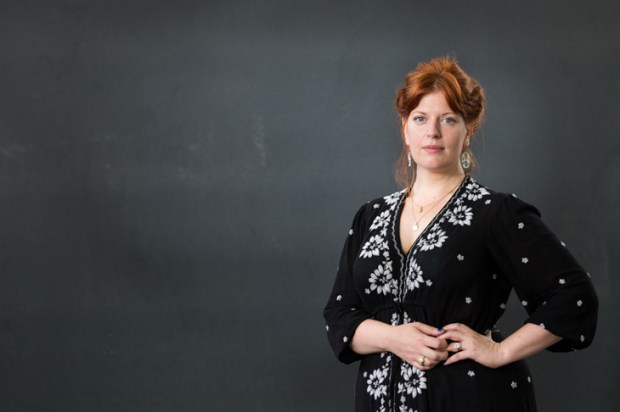There is always meat in Michael Arditti’s novels. He is a writer who presents moral problems via fiction but is subtle and shrewd enough to know that ‘issue books’, which are tracts not works of the imagination, are dull to read and rarely work as fiction should. He presents us with characters who are fully rounded, credible human beings living through moral dilemmas, affected by them, caring about them, living and dying within their context. In other words, he is an intelligent novelist.
But he is also a good storyteller, so this new novel is both stirring and exciting to read, and has a setting which is not ‘background’ but far more: a principal character in the book — in the sense that Thomas Hardy’s landscapes are characters, and shape the lives, thoughts, morals, emotions, beliefs and, as in the case of Arditti’s Philippines, even physique of the people who are born, reared and live within them.
Julian Tremayne was ordained as a Jesuit priest in the 1970s and sent out to the Philippines, where he gradually shed his political innocence and became aware of the plight of the poor and the corruption of the rich and the governing classes, as so many priests in that part of the world have done. But other priests, especially those in positions of authority, are less political, some would say less naive, and more devoted to Church than to God. One even utters the breathtaking but entirely credible phrase, ‘The gospel is nothing without the church.’
Some years later, a young man called Philip Sawyer becomes engaged to Father Julian’s great niece. By then the priest has apparently been killed and there is a campaign, gaining momentum and some official support, to have him canonised. The people are in no doubt that he has performed miracles, but proving those things is not merely a matter of their being believed. The march towards sainthood is a long and slow one over difficult terrain with dangerous obstacles and land mines at every turn.
Philip’s fiancée dies in a car crash and a few years afterwards he is asked by her parents to travel to the Philippines, at their expense, to investigate exactly what happened to Father Julian and what the true situation is regarding his progress to sainthood versus his reputation in some quarters as a murderer.
Because he has nothing else to do other than write his first novel, and no money, Philip goes to Manila and is at once caught up in a city and country whose fabric consists of the interweaving of Catholic faith and ancient superstitions, sexual exploitation, corruption, oppression of the poor by the extremely rich, war between rival political factions, including the gun-toting liberationists, many hiding out in the mountains, and the well-bribed, brutal government forces.
Manila is a rich melting-pot, and Arditti paints a wonderfully evocative picture of its back streets, shady clubs and bars, untrustworthy men and women, exploitation, maniacal traffic, noise, squalor, seediness, drink and drugs. The descriptions of the traditional foodstuffs and contents of a local stew could turn many a reader vegetarian.
Philip begins to seek out people who knew Father Julian. Most of the Catholic priestly hierarchy he encounters disapproved of him, some would put any obstacle in the path of his canonisation. Those who were miraculously cured by his touch are, of course, passionate in their devotion. But as he explores more deeply, Philip meets those who are not as they pretend to be, who lie and cheat and betray, and do so for many reasons, the most powerful one being fear, closely allied to revolutionary plans to topple the existing regime. There is many a Che Guevara hiding out in the hills.
Philip is betrayed by the very people he felt he could rely on, and finds himself in jail. His release is engineered by one of the Catholic elite who hopes that he has learned a lesson and will leave the country, as well as drop all interest in and investigation of Father Julian’s life and death.
But Philip has been quick to learn Julian’s own lessons about the country and how it works, and rapidly sides with those who are trying to achieve, not always by the most acceptable means, better lives for the poor and oppressed. How many people have attempted to bring about such change, and failed comprehensively, becomes very clear. Marcos and his shoe-fetishist wife Imelda were the worst, but Cory Aquino, ostensibly wanting change and more power to the people, is revealed as being both weak and untrustworthy herself.
Michael Arditti’s last novel was about seekers after miracle cures at Lourdes. This one is much more ambitious in scope and complexity but investigates some of the same moral dilemmas. He is a Christian writer who does not let his co-religionists, the churches or God off the hook. But he is not a Christian apologist, using fiction to persuade. He is intelligent and thought-provoking and he does not let his reader off any hooks either. But if you go into this sinewy novel expecting food for thought, do not be surprised when you also find ‘a cracking good read’.
I have one cavil. Philip is writing a novel, which becomes the story he is investigating. Does this make that story truth or fiction? It is narrated alternately by Father Julian and, some years later, by Philip. Whose story should we believe? Who is the character and who the novelist? This is a very tired fictional device and its use does nothing much to improve or add greater depth or further dimensions to the story. Indeed, because it is irritating, it detracts from the whole. I wish an editor had dissuaded him from playing textual games. He is far too good a writer to need them.
Got something to add? Join the discussion and comment below.
Get 10 issues for just $10
Subscribe to The Spectator Australia today for the next 10 magazine issues, plus full online access, for just $10.
You might disagree with half of it, but you’ll enjoy reading all of it. Try your first month for free, then just $2 a week for the remainder of your first year.












Comments
Don't miss out
Join the conversation with other Spectator Australia readers. Subscribe to leave a comment.
SUBSCRIBEAlready a subscriber? Log in